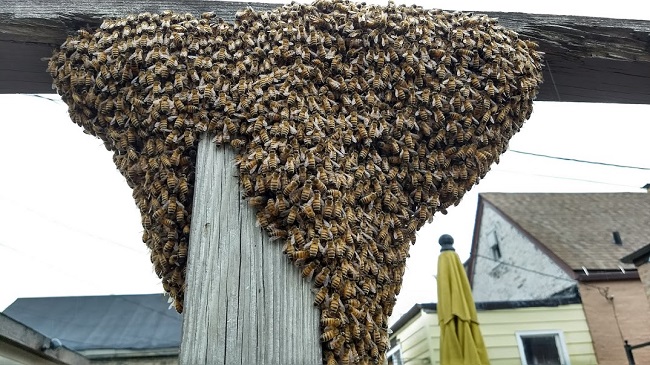October 29, 2017 – Survivor Queen Quest
![]() A jam-packed first hour features these segments:
A jam-packed first hour features these segments:
1. On our last show of 2016 (a year I’d like to forget for various reasons), Peggy and I talked to Patrick O’Neill, the CEO of an organization called Amp Your Good, which is determined to bring food drives into the 21st Century with something they call Crowd-Feeding:
Crowd-Feeding enables food drives to raise healthy food: perishable food like fresh fruits and vegetables, organic food, whole meals and lots of other healthy food. Why? Because people facing hunger also struggle with diet related health issues – things like diabetes, obesity and hypertension – due to lack of access to healthy food. Crowd-Feeding ensures that people facing hunger get the food they really need.
 In May of this year, they partnered with a number of organizations, including Food Tank, WhyHunger, Wholesome Wave and others to launch the #GiveHealthy Movement this. They’ve gone on to include Feeding America, Share Our Strength, The Food Trust, the Academy of Nutrition and Dietetics and others to work on changing the most common form of giving in the US.
In May of this year, they partnered with a number of organizations, including Food Tank, WhyHunger, Wholesome Wave and others to launch the #GiveHealthy Movement this. They’ve gone on to include Feeding America, Share Our Strength, The Food Trust, the Academy of Nutrition and Dietetics and others to work on changing the most common form of giving in the US.
On October 16, the #GiveHealthy Movement celebrated World Food Day with its New York City launch. With the coming of November, we’re really into the season of giving, so why not do it right? Patrick O’Neill returns to the show today to tell us how.
2. November 4 will mark the final Saturday for The Mike Nowak Show on WCGO (don’t worry, we’ll still be on Sundays from 9 to 11am), but we’re going out in style. Peggy and I will be broadcasting live from the 10th Anniversary Green Living Expo at McHenry County College.
Learn about the latest in sustainable living, get ideas for energy saving, shop for green gifts, and take in fun, educational exhibits, such as
- two fully-decorated, locally-owned tiny homes,
- the award-winning travelling exhibit “Sustainable Choices”
- the work of artists displaying and selling their sustainable creations in the Artists Walk at the Expo
- area college/university solar and super mileage team race cars and team members
In addition, there will be fall décor/pumpkin composting available, and you can visit the Living Lightly Tent, where novice to expert tinkerers to come and share their favorite energy-saving inventions or finds.
The Expo is 10am to 3pm at McHenry County College, 8900 US Hwy 14, Crystal Lake, Illinois 60012-2761. And, of course, The Mike Nowak Show is 10-11am.
3. I know about a fork of the Chicago River called Bubbly Creek mainly because Mike Bryson, who is a Professor and Director of Sustainability Studies Roosevelt University in Chicago has been known to take classes down its short length as a way of educating students in a very close up and personal way about the legacy of industrial water pollution in a major American city.
Well, Bubbly Creek is back on my radar again, and it is living up to its reputation. A few days ago, an oil slick was detected in the water
Crews used booms at the entrance to Bubbly Creek to work to contain the oil. The main part of the South Branch and other area waterways were not affected by the closing.
The U.S. Environmental Protection Agency and the Metropolitan Water Reclamation District were working to find the source of the oil, officials said.
Staff from the U.S. Fish and Wildlife Service and the USDA’s Wildlife Service were working with the EPA to find and retrieve killed and injured wildlife, according to the EPA. Birds that were covered in oil were being handed over to wildlife rehab experts.
As of this writing, the source of the oil hasn’t been discovered and, for now, Bubbly Creek has been closed to people and boats. Margaret Frisbie, Executive Director of Friends of the Chicago River, joins us to talk about the clean up and the search for the source of the slick.
Saving honey bees, one healthy queen at a time
Bill Whitney is a man in search of a queen.
That might seem a little odd until you understand that Whitney owns a business call City Bee Savers in Wheaton, Illinois. While he has been a beekeeper for 25 years, his business is only three years old, and you have to wonder what took him so long to put his money where he passion obviously lies.
He says that in his previous life he was an “illustrator animator creating animated explanatory videos for corporations and patent litigation.” Then he
 purchased a beehive to compliment our large vegetable and flower gardens. As a typical guy I didn’t read the instructions until it was clear I had no clue what I was doing. Shortly after starting this hive and not many pages into Dadant’s 1,300 page book, “The Hive and The Honey Bee” did I really discover I was hooked on this fascinating insect society.
purchased a beehive to compliment our large vegetable and flower gardens. As a typical guy I didn’t read the instructions until it was clear I had no clue what I was doing. Shortly after starting this hive and not many pages into Dadant’s 1,300 page book, “The Hive and The Honey Bee” did I really discover I was hooked on this fascinating insect society.
Eventually, this [enthusiasm] spread as I began seeing many of my friends, neighbors and family members acquire hives for themselves. This growing community of beekeepers and their beekeeping friends were increasingly relying on my help through honey bee difficulties. Eventually I found myself spending a considerable amount of free time resolving my own and other peoples beekeeping challenges. This lead to a spontaneous decision 3 years ago to just for fun take a few spring and summer months off devoting the time exclusively to beekeeping. Those few months strung out through spring, summer and most of fall, not ending until November. It felt like experiencing 6 months of activities in a tumble dryer only to discover I had a new full time vocation.
Today, City Bee Savers works with the general public to remove honey bees and other types of bees from buildings and homes, provides a turnkey swarm trap for preventive measures, and for the person or company that wants a hive but would rather someone else care for the bees, does “house calls.”
For beekeepers Whitney offers classes and mentoring opportunities, spring honey bee packages and starter colonies (NUCs), basic honey bee supplies, and, what he considers most important, the development of a bonafide Chicagoland survivor honey bee queen.
What’s that, you ask? While honey bee colony losses nationally slowed to 33% in 2017 from 44% the previous year, Whitney notes that in 2016, the number was greater than 80% in northern Illinois. Part of the reason, he says, is that large producers of bees are out of state and supply bees from migratory sources that are “exposed to many undesirable elements such as Africanized genetics, chemical treatments, mites, and diseases.” He also claims that breeder queens have limited genetic diversity, which leads to their inability to survive in this area.
Which takes us to survivor queens, which he defines as
A colony that has survived on its own for 5 or more years without human assistance. This colony will produce queens and drones with the genetics needed to overcome the local stressors.
Whitney is on the lookout for those colonies in homes and buildings, though he admits that they are rare, and removing those bees is time consuming and costly. He suggests a “swarm bait box” that is more attractive to honey bees than settling in a house. His goal is to get as many of these into backyards as possible, at a modest price of $75.00.
He is also part of the Illinois Queen Initiative, which had its fall meeting just yesterday in Bloomington, Illinois and which Whitney attended. If he’s not too tuckered out, Bill Whitney joins us in the 1590 WCGO studios this morning.


